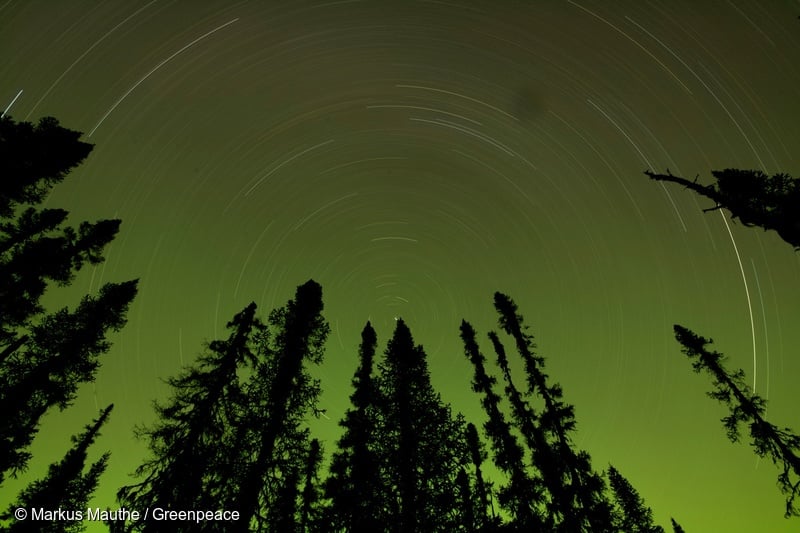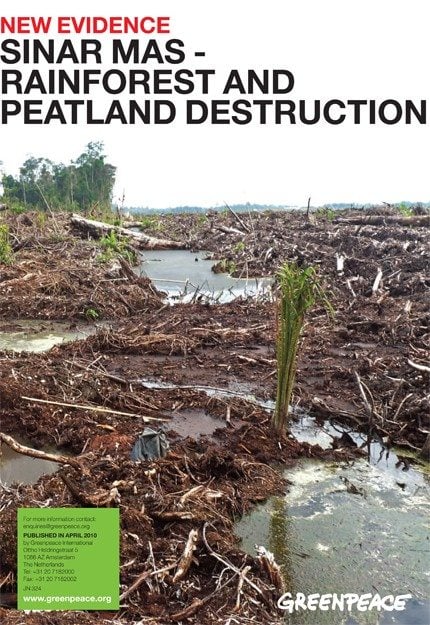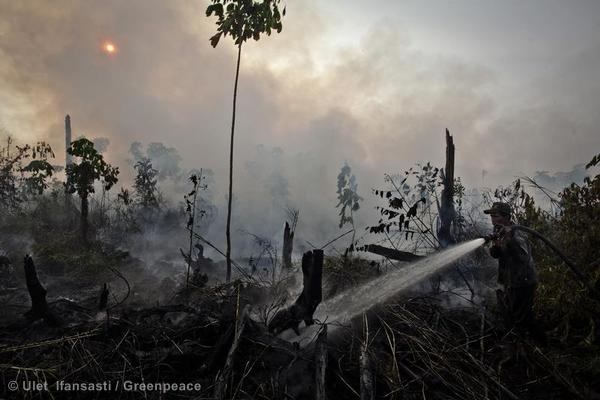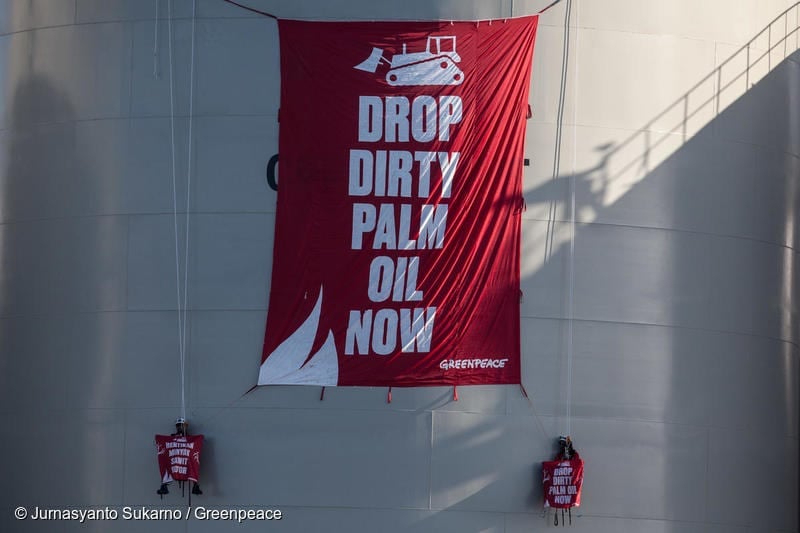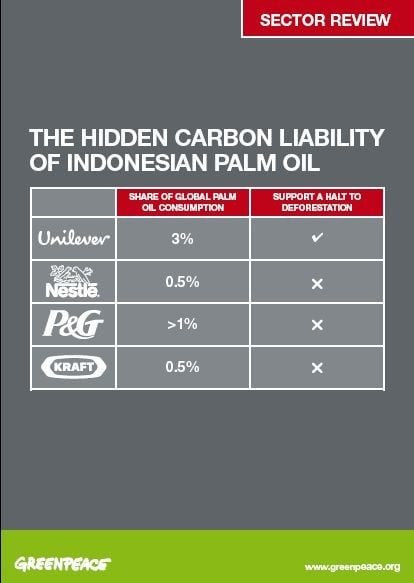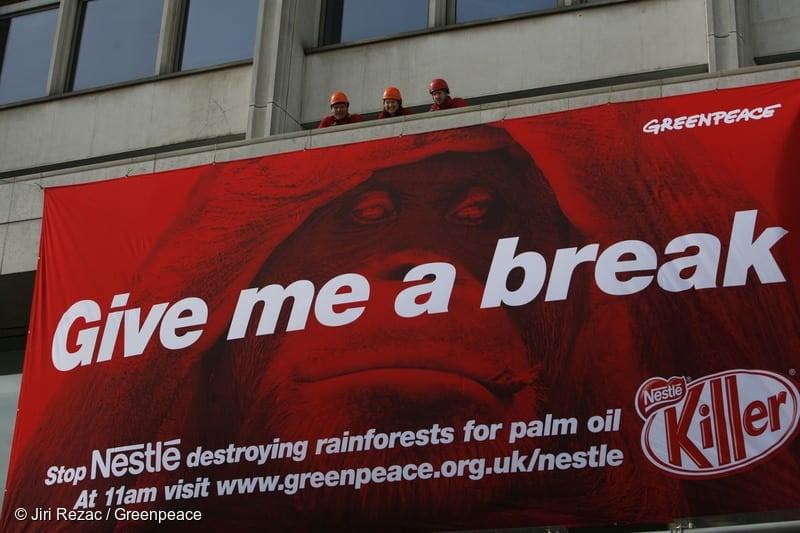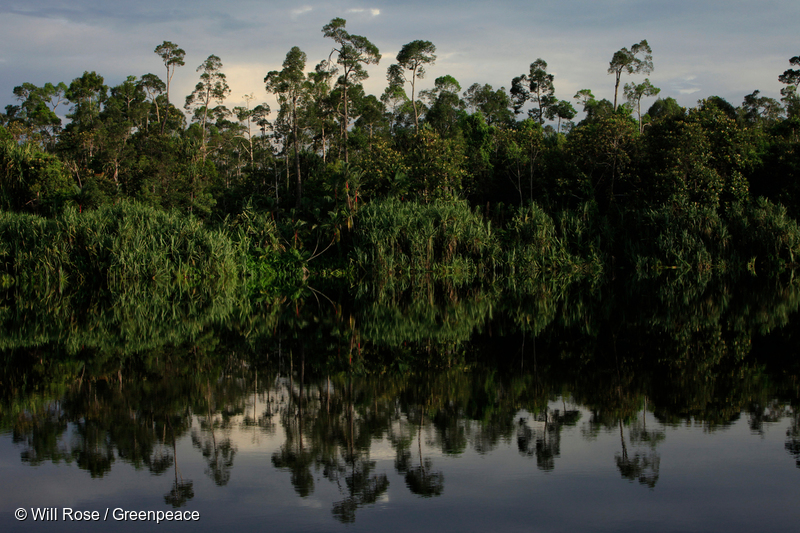
Indonesian rainforests & palm oil
Forests of Indonesia are the third largest tropical rainforests in the world and one of the greatest biodiversity hotspots on Earth.
Indonesia is home to 10% to 15% of all known plants, mammals and birds on the planet. From the iconic orangutans and Sumatran tigers to the incredible birds of paradise, many rare species, threatened with extinction, can only be found in Indonesia’s forests.
These forests also store nearly 300 billion tonnes of carbon, which is roughly 40 times the annual greenhouse gas emissions from fossil fuels. We need forests to help regulate the Earth’s climate and avoid the worst impacts of the climate crisis.
Palm oil and peatland forests
Palm oil and its derivatives is a highly versatile key ingredient in a wide array of consumer products including snack foods, cosmetics, and cleaning products. This vegetable oil is in over half the products sold in supermarkets. But where does it come from?
In Indonesia companies clear and drain carbon-rich peatland forests to create rows and rows of palm plantations, in order to harvest the palm seed and kernel to make oil. When these dense peatlands forests are cleared and drained, they lost their ability to support wildlife, hold carbon and perform other ecosystem functions. Drained peatlands also become highly flammable and it becomes very hard to contain fires. Burning peatlands release a staggering amount of carbon dioxide into the atmosphere.
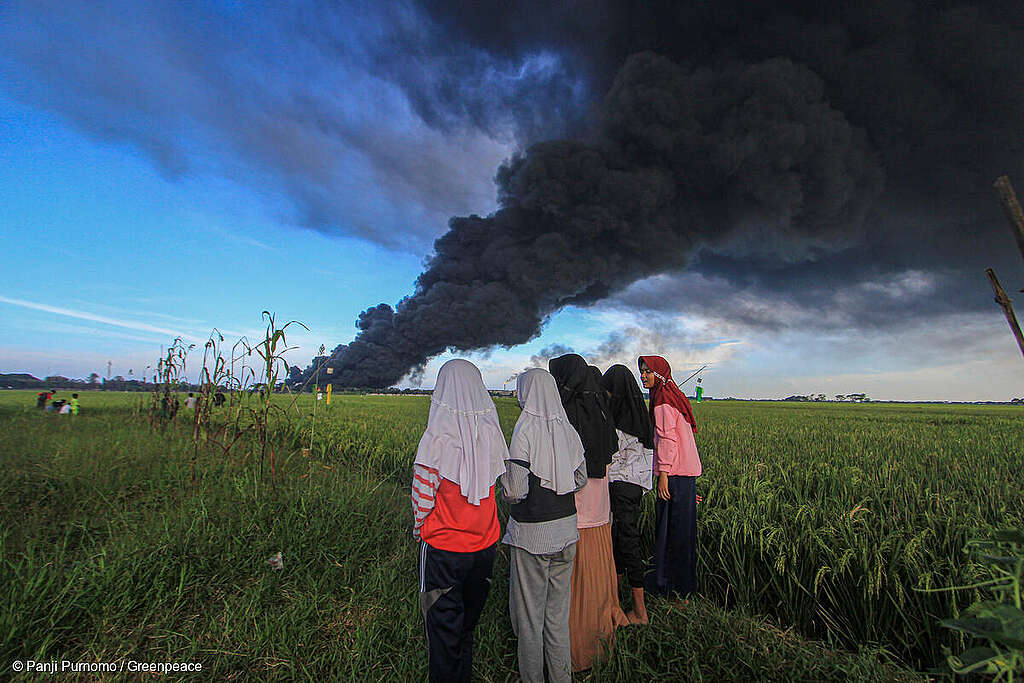
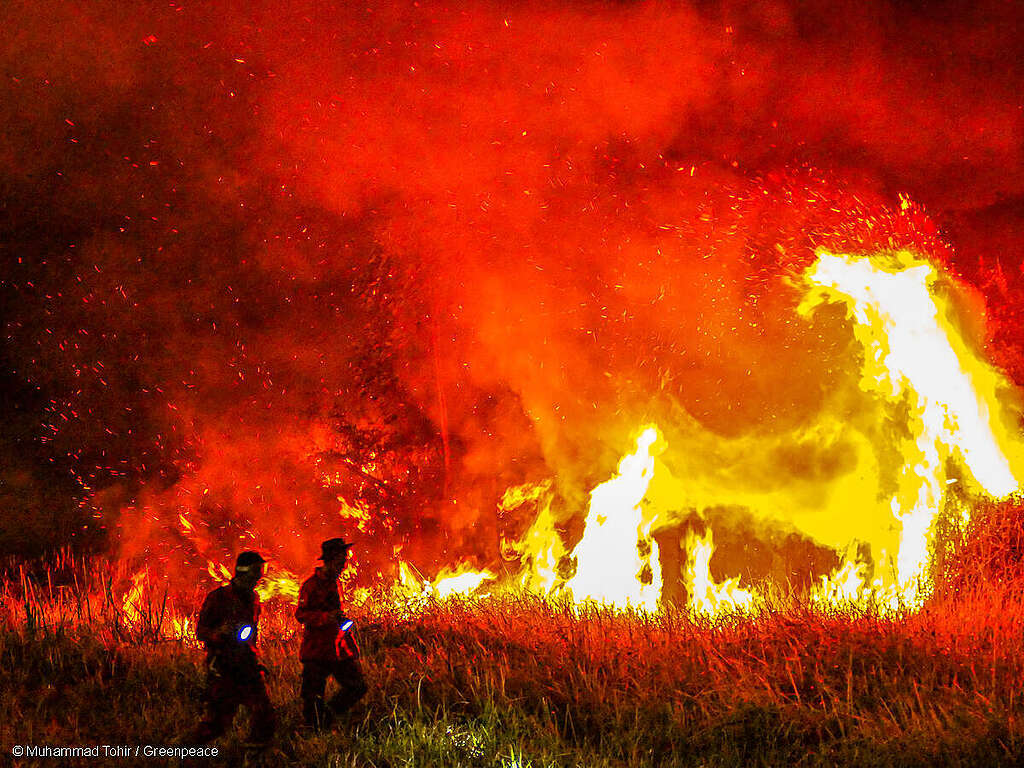
Peatland fires happen yearly
Deforestation, mainly for palm oil, has pushed Indonesia to be one of the highest emitters of global greenhouse gas emissions globally, alongside the United States and China.
For almost four decades, the deadly toxic smoke and air pollution from the yearly burning of peatlands and forests have exacted a toll on communities across Indonesia and neighboring countries. The fires of 2015 marked one of the greatest human environmental tragedies that affected millions of people across Southeast Asia. Researchers at Harvard and Columbia Universities estimate that the smoke from 2015 Indonesian fires may have caused 100,000 premature deaths. The World Bank calculated the cost of the disaster at US $16bn. The fires of 2019 nearly matched the scale of destruction in 2015, which have placed nearly 10 million children at risk.
Despite government regulations, Indonesia’s forests are still being cleared for palm oil, pulp wood, logging and mining. Palm oil continues to be one of the leading drivers of deforestation and Indonesia is the largest producer of palm oil.
Corporate commitments
For decades, Greenpeace offices around the world have been campaigning to have corporations clean up their act. We’ve exposed big companies like Nestlé, Mondelēz, and Mars for their use of dirty palm oil. After tremendous consumer pressure worldwide, many of these companies committed to put an end to deforestation and exploitation in their palm oil supply chains by 2020. These corporations, along with the members of the Consumer Goods Forum, grossly missed their 2020 deadline and forests continue to be cleared for industrial agricultural commodities.
We Need Real Action Not More Promises
Consumer goods companies have continued to buy palm oil from suppliers responsible for forest destruction and human rights violations while making empty promises, such as net-zero pledges, carbon neutrality, and offsets. Corporations must take meaningful action by dropping dirty suppliers, ensuring complete transparency in their supply chains by publishing the maps of producer group land holdings, and taking immediate steps to break the destructive cycle of forest destruction.
The U.S. government also has a responsibility to end global deforestation and human rights violations through its import and consumption of forest-and-ecosystem risk commodities. This includes the U.S. ending the promotion and the financing of extractive forms of development expansions overseas. Strong legislation is needed to end all forms of deforestation and reign-in corporations for their land-use emissions tied to the commodities trade.
Illegal logging & pulp and paper
In Indonesia, forests and peatlands are also cleared to create monoculture pulp and paper plantations to grow tissue, paper, and packaging.
Greenpeace Southeast Asia and other global offices have focused on two major pulp and paper companies for more than a decade: Asia Pulp and Paper and APRIL, whose paper products reach corporations around the world from toilet paper, candy wrappers, and office supplies. Global campaigns to get consumer companies like Mattel, Yum Brands, Xerox and Staples to stop buying paper from these destructive companies did yield sustainable paper policies. And ultimately helped bring about Asia Pulp and Paper’s Forest Conservation Policy. Unfortunately despite initial hope, sustainable forestry certifications and corporate no deforestation commitments, the industry is still responsible for ongoing and widespread deforestation, including in critical wildlife habitat.
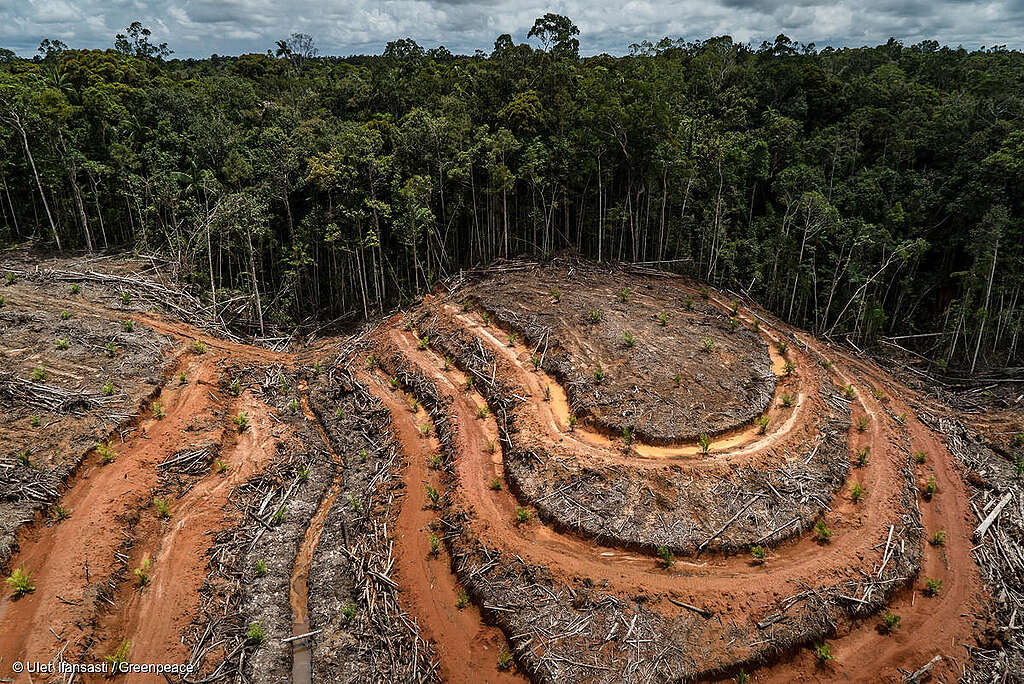
Learn more about…
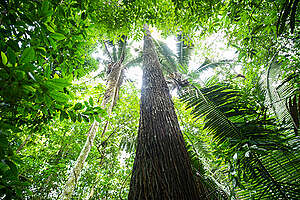
Brazil and the Amazon
-

Wrecking the future: the Trump war on the ocean, climate, and communities
Wrecking the future: The Trump war on the ocean, climate, and communities. Dismantling climate and oceans protections.
-

This hurricane season Greenpeace USA helps deliver Uncle Sam’s disturbing message to America
Greenpeace USA deployed a banner at the Federal Emergency Management Agency (FEMA) headquarters to assist in making Uncle Sam’s message to the country crystal clear: this hurricane season, you are…
-

Greenpeace USA Slams U.S. Seabed Mining Plans off American Samoa
The Pacific is not a sacrifice zone. Its people should not be forced to host a destructive industry they’ve clearly rejected.
-
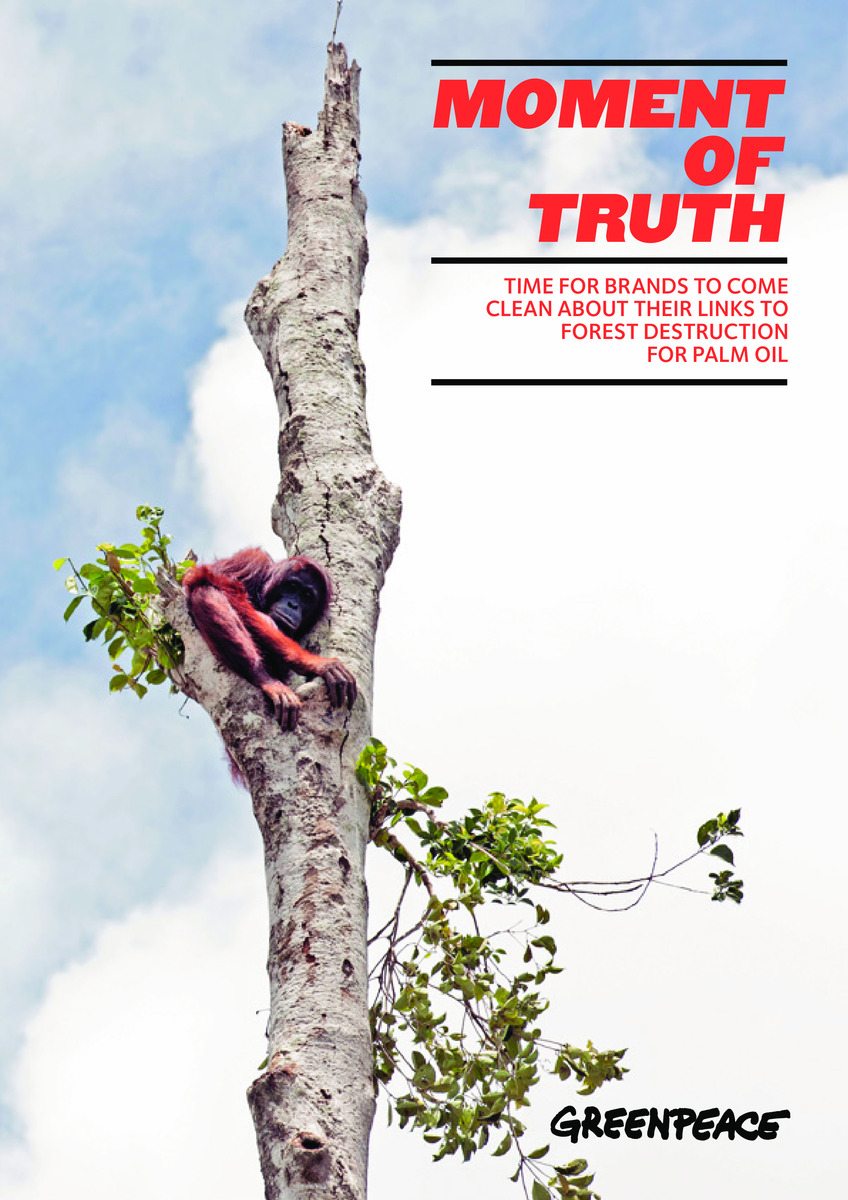
Moment of Truth: Time for Brands to Come Clean About Their Links to Forest Destruction for Palm Oil
It has been close to a decade since consumer brands pledged to eliminate deforestation from palm oil and other key commodities by 2020. Despite these commitments, there is growing evidence…
-
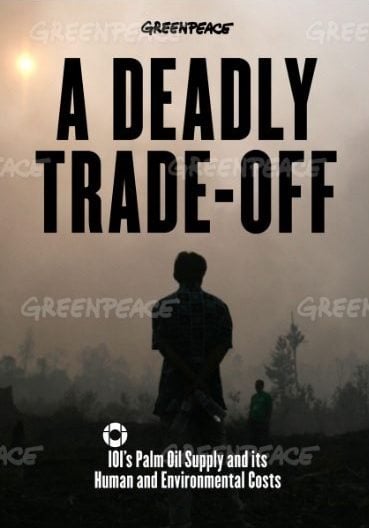
A Deadly Trade-off: IOI’s Palm Oil Supply and Its Human and Environmental Costs
This Greenpeace International investigative report looks at the Malaysian palm oil company IOI Group and its downstream subsidiary in Europe and North America, IOI Loders Croklaan. Despite policies to ensure…
-

Cutting Deforestation Out of Palm Oil – Company Scorecard
Click here to download the full report: “Cutting Deforestation Out of Palm Oil.” In 2015, Indonesia was wracked by the worst forest fires for almost twenty years. The disaster, the…
-
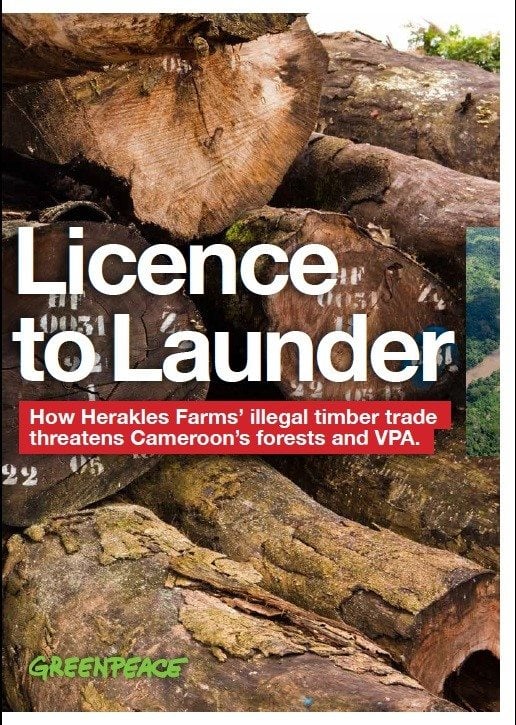
Licence to Launder
The oil palm plantation being developed by Herakles Farms in the southwest region of Cameroon – an area of great biodiversity surrounded by five protected areas – illustrates what happens when irresponsible companies are not held accountable to local laws and processes. The companies activities pose a serious threat to forested areas and the communities…
-

Herakles Exposed
The report details a series of 9 misstatements, lies, or inaccuracies found in communications from Herakles Farms around their palm oil project in Cameroon.
-

Herakles Farms in Cameroon
The project covers 73,086 hectares (180,599 acres) of forest and existing farmland and is home to an estimated 14,000 people, mostly small farmers. Residents are fiercely opposing the plantation, fearing…
-
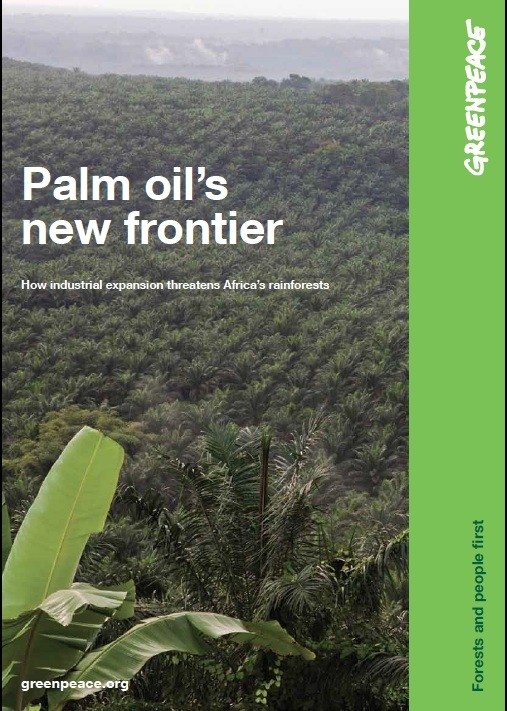
Palm Oil’s New Frontier
When it is done well and is properly managed, palm oil production can be of potential benefit to the populations of developing countries, providing sustainable livelihoods. On the other hand,…
-

Junking the Jungle
Greenpeace research has tracked a number of these products back to Asia Pulp & Paper (APP), a company that continues to rely on rainforest clearance in Indonesia. By purchasing paper…
-

The Ramin paper Trail
A year-long investigation by Greenpeace International demonstrates that Asia Pulp & Paper (APP) is breaking Indonesian law, driving Sumatran tigers and ramin trees closer to extinction, and undermining CITES –…
-

Protection Money
I am confident that we can reach this goal [of GHG emissions reduction targets], while also ensuring sustainable and equitable economic growth for our people.
-
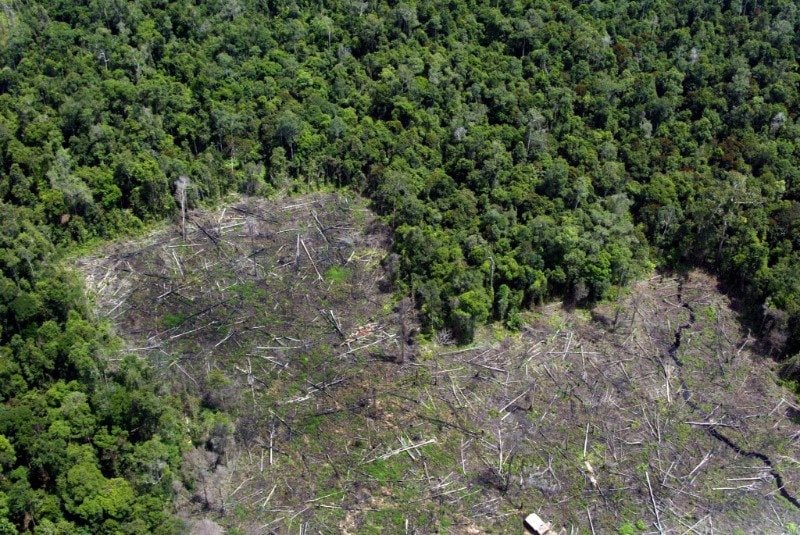
Sinar Mas pays ‘ITS Global’ to greenwash its dirty laundry
Sinar Mas has since hired the Australia-based consultancy ITS Global (International Trade Strategies Global) to ‘assess the validity and accuracy of the claims’ made by Greenpeace ‘based on the evidence…
-
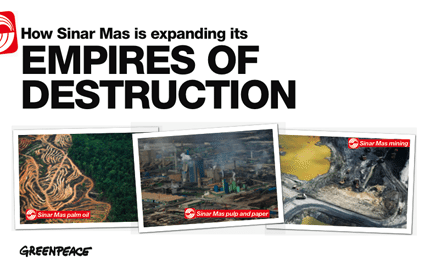
How Sinar Mas is expanding its empires of destruction
Sinar Mas group is notorious for its destruction of millions of acres of Indonesian rainforest, peatland and wildlife habitat. Two divisions within the group lead the destruction: pulp and palm…
-
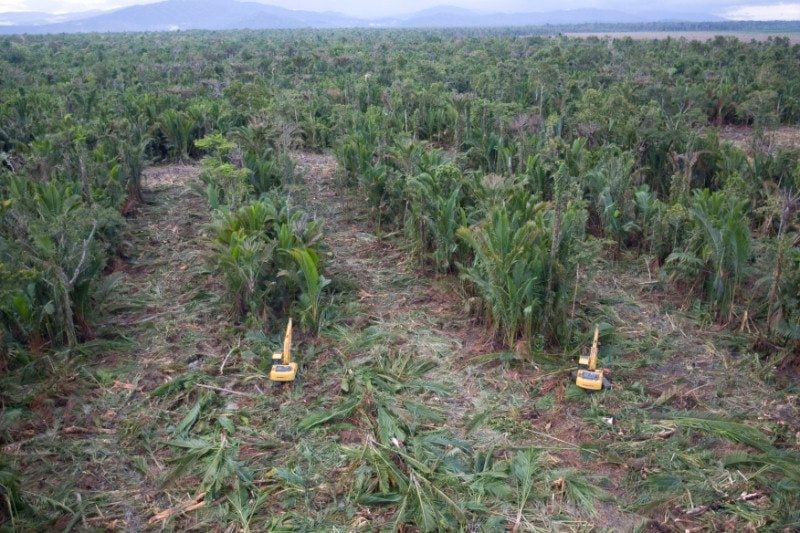
SINAR MAS : Indonesian Palm Oil Menance
Download document Num. pages: 4
-
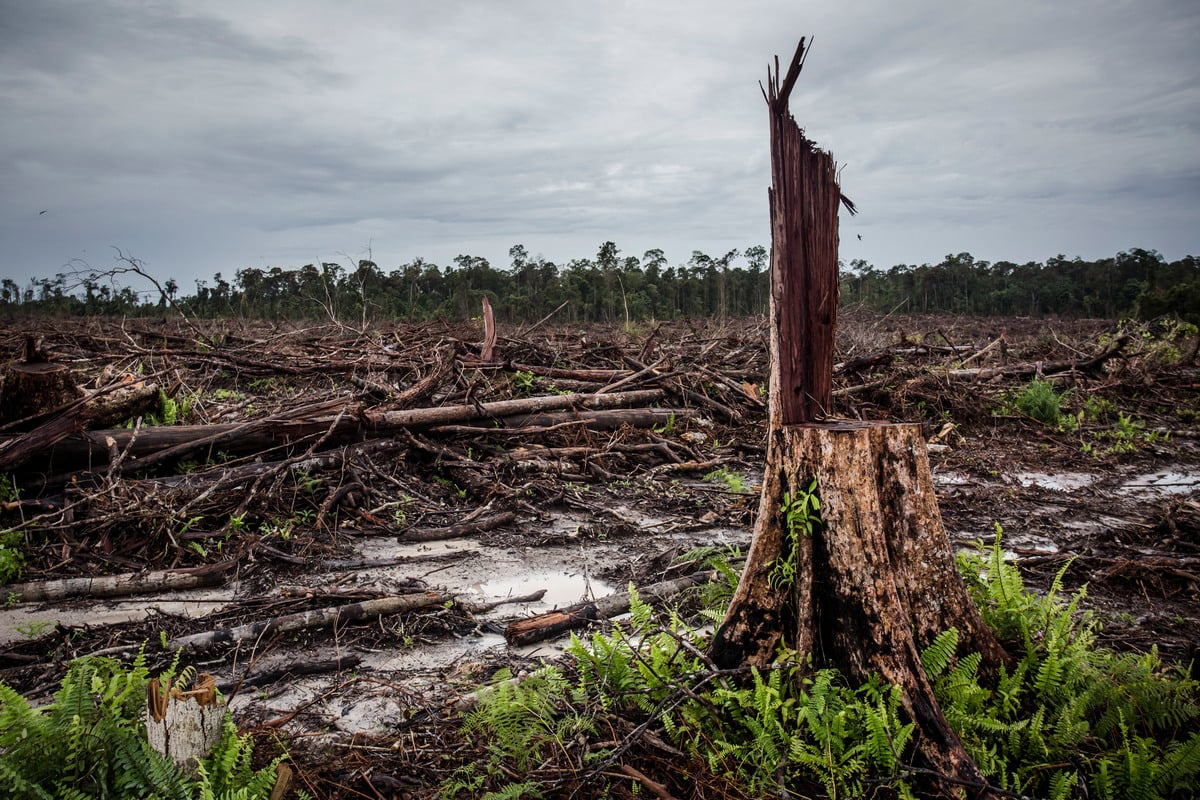
How Unilever palm oil suppliers are burning up Borneo
New evidence shows expansion by Unilever palm oil suppliers is driving species extinction in Central Kalimantan, and fueling climate change.
-
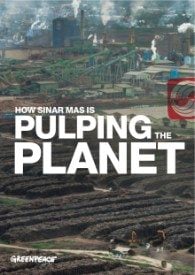
How Sinar Mas is pulping the planet
These companies are using or selling paper made from Asia Pulp and Paper (APP), part of the notorious Sinar Mas group that is destroying Indonesia’s rainforests and carbon- rich peatlands.

